December 23, 2024
As we near the end of 2024, now is the perfect time to look back on a year of positive developments at Restorasi Ekostistem Riau (RER). From landmark reports on a decade of operations, to international events and new developments in the field, it has been 12 months of progress in our mission to deliver lasting impacts for nature. In this article, we’ll provide a brief overview of the major activities.
Progress Reports
This year we published our 2023 Progress Report, which provided operational insights, analysis, and updates from our team. The findings outlined in the report demonstrate the power and the potential of collective action when seeking to positively impact nature.
RER also published a Special Report in 2024, which outlines the progress made over the last decade of conservation and restoration operations. With detailed insights from our top leadership, along with a closer look at programs in the field. This report is well worth a read.
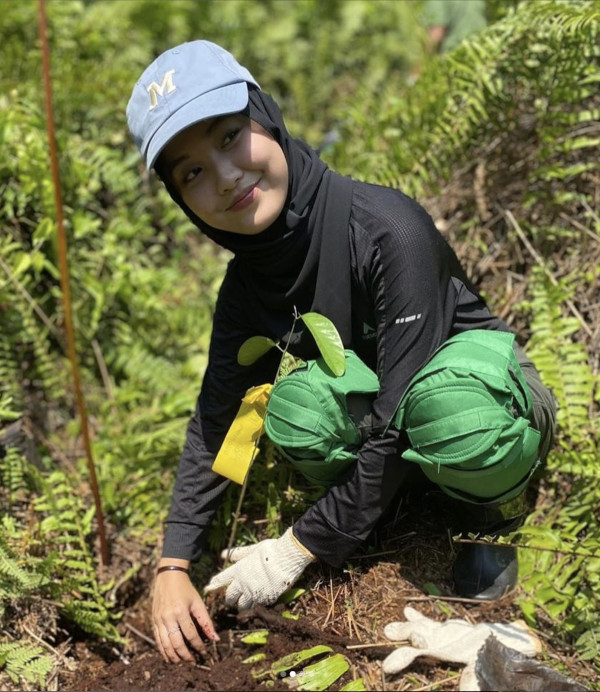
Visitors to RER
RER regularly hosts guests at our Eco-Research Camp to inform them of RER’s protection and restoration activities, biodiversity and carbon monitoring, and to enjoy nature. During 2024, we welcomed more than 200 visitors from around the globe. In November, we hosted students from the International Forestry Students’ Association (IFSA) and Riau University for an immersive and practical conservation experience.
The students toured 1 of 4 GHG Flux monitoring towers which records carbon dioxide and other gases released from the peat ecosystem; learned how canal blocking rehydrates peatlands; and visited one of our native tree nurseries. They also learned about peatland water monitoring, visited ranger posts and a restoration site to witness conservation efforts, and deployed camera traps to monitor wildlife.
“These hands-on activities are meant to inspire future forestry leaders,” said RER Ecologist Yoan Dinata after the visit. “It’s crucial to emphasize the importance of conservation and forest protection to the next generation,” he added.
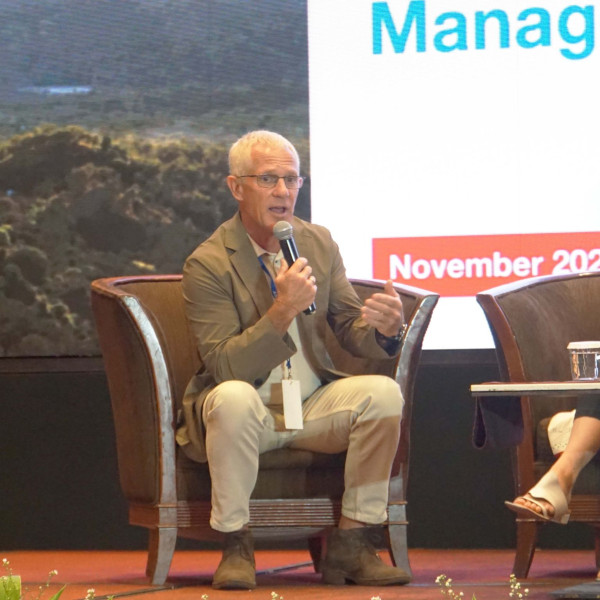
Events and International Exposure
Working alongside the Tanoto Foundation, RER presented a number of developments and contributions to climate crisis management at the 5th International Summer Course on Forestry and Environment at IPB University Bogor. The event was attended by hundreds of students from eight countries, who were treated to a screening of Frontier Sumatra, a documentary that demonstrates how RER safeguards and protects over 150,000 hectares of RER peatland forest in Sumatra, home to more than 890 wildlife species.
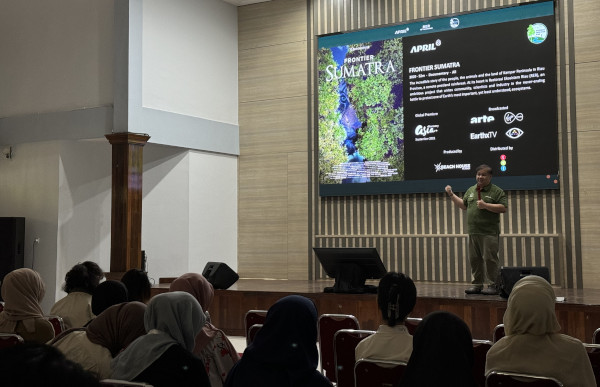
Moving Toward a Haze-free Southeast Asia
ASEAN Member States have extended their efforts to prevent peatland fires and haze, by adoption of the Second Roadmap on ASEAN Cooperation towards Transboundary Haze Pollution Control with Means of Implementation (2023–2030) and the Second ASEAN Peatland Management Strategy 2023–2030.
To advance these efforts, and discuss resource mobilization for sustainable land management, the ASEAN Secretariat hosted a policy dialogue in Jakarta on November 26, in partnership with the Center for International Forestry Research (CIFOR). One of the speakers was Brad Sanders, Head of Operations at RER, who shared updates on progress achieved by the RER project over the last decade.
In particular he confirmed that the RER project on Kampar Peninsula has had zero fire incidents for the past 10-years and is consistently and adequately resourced through private sector funding derived from the productivity of fibre plantations that surround the RER peat forest. Other speakers on the panel included Serena Lew Siew Yan, Peatland Program Manager at the Global Environment Center; Swetha Peteru, from CIFOR; and Azalea Ayuningtyas, co-founder and CEO of Krealogi. The panel was moderated by Gina Sara Melati of SEA Today.
COP29
Another major event in 2024 was the 29th United Nations Climate Change Conference, or Conference of the Parties of the UNFCCC (more commonly known as COP29), held in Baku, Azerbaijan, from November 11–22. RER was represented at COP29 by Dian Novarina.
Dian shared our approach to forest management, utilizing an integrated production-protection model that surrounds conservation areas with plantations developed on degraded or deforested sites, thereby creating a protective buffer that safeguards large blocks of forest from the threat of encroachment while also funding restoration efforts.
Through our Thriving Landscapes commitment, APRIL invests US$1 per ton of fibre supplied from our plantations to our manufacturing facilities to fund forest conservation and restoration. Since 2020, more than US$35 million has been directed to APRIL’s numerous conservation initiatives like the RER program.
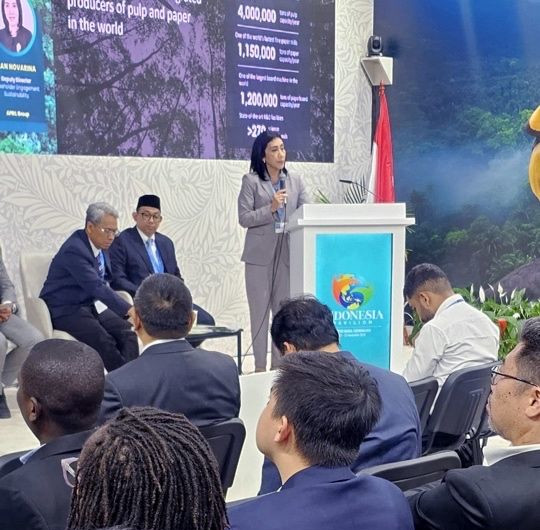
Makmur Area Establishment
RER has been working to restore the 41 ha Makmur site on the Kampar Peninsula, where highly degraded mixed peat swamp forest existed due to past drainage, logging and fire
The restoration process involved a combination landscape protection; canal blocking and 7-years of planting and seedling maintenance.
Building on a process that began in 2017, RER continued the restoration journey of the Makmur area by building a new ranger post in 2024 and initiating the planting of shade-tolerant seedlings to enrich the early successional trees previously planted. As a result of these activities, tree density has nearly tripled from 192 trees/ha to 518 trees/ha. This methodical and consistent effort has initiated peat forest restoration which may require up to 170-years to recover its full floristic composition.
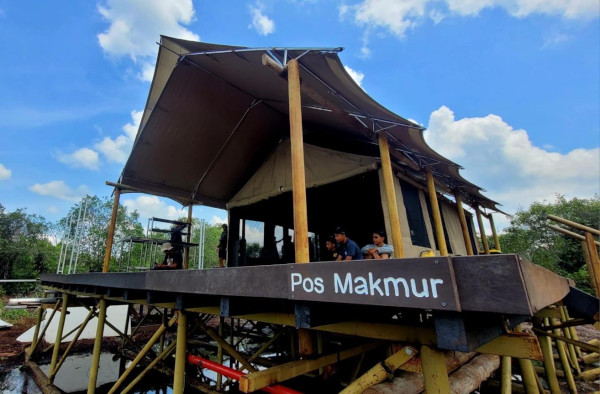
Eco Research Camp
Covering an area of 32 hectares in the heart of the Kampar Peninsula, our Eco-Research Camp is a hub for research and scientific study of this important peatland ecosystem. Built on a former acacia fiber plantation next to the Serkap River, and adjacent to a High Conservation Value (HCV) riparian forest, this facility is the epicenter of our field activities in Riau. In 2024, we initiated the construction of additional storage and housing facilities for up to 40 staff and researchers. The project is expected to be completed by April 2025.